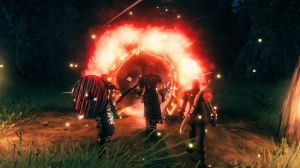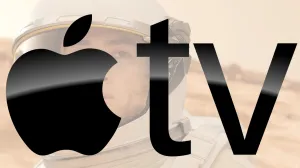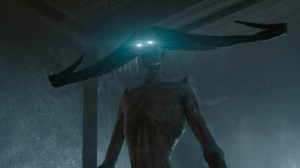Audiences are loving Black Panther. The latest installment of the Marvel Cinematic Universe is not just crushing it at the box office, has been widely praised by critics, and even has an A+ Cinemascore from movie audiences.
Videos by ComicBook.com
But even for all the positive reception Black Panther is getting, there have been a few critiques and one that people talking the most is the perception that the ending of Captain America: Civil War doesn’t quite line up to the beginning of Black Panther despite Black Panther clearly indicating that’s where things are supposed to pick up.
Spoilers for Black Panther below.
While some discrepancies in timeline are common in the MCU, fans are specifically pointing the issue of Bucky Barnes (Sebastian Stan) as a continuity error or plot hole in Black Panther. As you may recall, at the end of Civil War, Bucky and Steve Rogers/Captain America (Chris Evans) go to Wakanda where T’Challa (Chadwick Boseman) not only grants Bucky asylum, but puts him into cryogenic sleep until they can find a cure for his HYDRA brainwashing. These events supposedly happened a few weeks after Steve broke Sam Wilson/Falcon, Wanda Maximoff/Scarlet Witch, Clint Barton/Hawkeye, and Scott Lang/Ant-Man out of custody on the Raft. The timeline Bucky’s arrival in Wakanda are confirmed in the Avengers: Infinity War Prelude comic where the panel clearly indicates Bucky and Steve meet with T’Challa “weeks later.”

The continuity question comes in during the opening of Black Panther when T’Challa returns home to Wakanda, presumably for the first time after Civil War. After making what audiences assume is a travel detour to rescue Nakia (Lupita Nyong’o,) T’Challa goes home where he is greeted by his mother and sister ahead of the challenge ceremony where T’Challa will officially become king. The issue? Fans are pointing out that if T’Challa is finally returning home in that Black Panther scene, there’s no way Bucky could have come to Wakanda as shown in Civil War.
But those calling this a plot hole, or a continuity error may be making an error themselves, one of assumptions. Yes, T’Challa is returning home to great fanfare from his family and the Dora Milaje in Black Panther, but there is nothing that explicitly states that this is the first time T’Challa has been back since Civil War. Instead, the excitement of T’Challa’s arrival is less about him being home and more about the impending challenge ceremony. We know, as is revealed later in the movie, the challenge ceremony can take weeks to prepare for. With this being the case, it’s likely that T’Challa returned to Wakanda after Civil War just as we expected him to, was there for a time — likely the time frame in which Bucky came for help — and then left on a mission to rescue Nakia before coming back home again, this time ready for the challenge ceremony that would officially make him king.
But, you might say, T’Challa’s mother Ramonda (Angela Bassett) seemed a little too emotional at T’Challa’s return for it to have been the first time she’d seen him since Civil War and yes, Ramonda was emotional. However, if one considers that, at most, a month has passed since her beloved husband died in a terrorist attack and now her only son is about to be be crowned king in his father’s place, the emotion that we see Ramonda express makes sense. This is a woman who is both proud of her son and still grieving her loss. It’s an intense, deeply personal moment for her which makes her emotions — as well as those of Shuri and T’Challa — very raw. This family is still dealing with a heavy loss. Everything feels as fresh as if it had happened hours before.
Also, consider that if T’Challa’s arrival in Wakanda in Black Panther was the first time he’d been home since his father’s death then where is T’Chaka’s body and why are they preparing for a challenge ceremony and not a funeral? Wakandan death rites play a small role in Black Panther, but they are clearly important. N’Jobu (Sterling K. Brown) is denied a proper and fitting burial in the Wakandan homeland in the film, something that T’Challa finds troubling when he discovers the truth about his uncle’s disappearance in the 1990s. We also see T’Challa first offering Killmonger (Michael B. Jordan) proper burial in Wakanda, though Killmonger wants to be buried at sea instead. Even with that request, though, we see T’Challa taking great care to respectfully position Killmonger’s body according to Wakandan tradition. With these death rites being so culturally important, had the scene in Black Panther truly been T’Challa’s first time home since his father’s death, we would have seen some sort of reference to a funeral, not the preparation for what amounts to a coronation party.
And if that’s not enough to sell you, consider this: if only a week has transpired from Civil War to Black Panther, that “week” would include all of Civil War, including the mid and post-credits scene which, again, the prelude comic confirms happened a week after the main scenes in the film.
Realistically, there’s no continuity error or plot hole between Civil War and Black Panther, just a series of events that didn’t make it into the film as the story Black Panther sought to tell was not about Bucky’s arrival in Wakanda or about the death of T’Chaka — those tales were already told — but the story of how T’Challa went from heroic prince to that of a true king and true leader poised to shepherd his people and the entire world into a new age.
Black Panther is now in theaters. It will be followed by Avengers: Infinity War on May 4th, Ant-Man and the Wasp on July 6th, Captain Marvel on March 8, 2019, the fourth Avengers movie on May 3, 2019, the sequel to Spider-Man: Homecoming on July 5, 2019, and Guardians of the Galaxy Vol. 3 in 2020.








